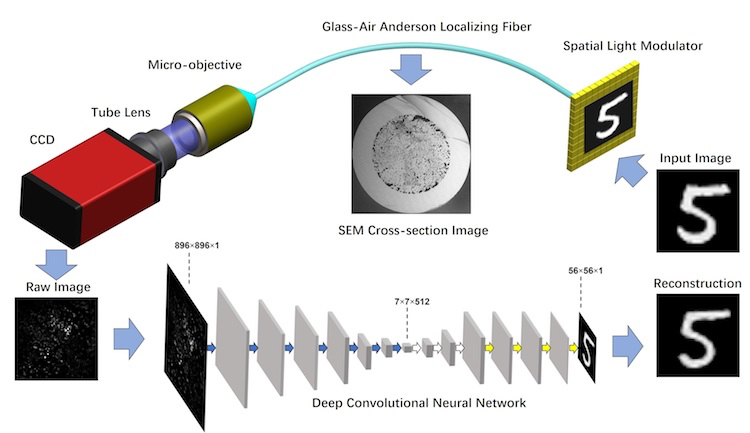A paper titled “Deep Learning Imaging through Fully-Flexible Glass-Air Disordered Fiber” by Professors Amezcua, Pang, and Schülzgen is featured in Physics World.
We demonstrate a fully flexible, artifact-free, and lensless fiber-based imaging system. For the first time, this system combines image reconstruction by a trained deep neural network with low-loss image transmission through disordered glass-air Anderson localized optical fiber. We experimentally demonstrate transmission of intensity images through meter-long disordered fiber with and without fiber bending. The system provides the unique property that the training performed within a straight fiber setup can be utilized for high fidelity reconstruction of images that are transported through either straight or bent fiber making retraining for different bending situations unnecessary. In addition, high quality image transport and reconstruction is demonstrated for objects that are several millimeters away from the fiber input facet eliminating the need for additional optical elements at the distal end of the fiber. This novel imaging system shows great potential for practical applications in endoscopy including studies on freely behaving subjects.

Posted Friday, October 5, 2018